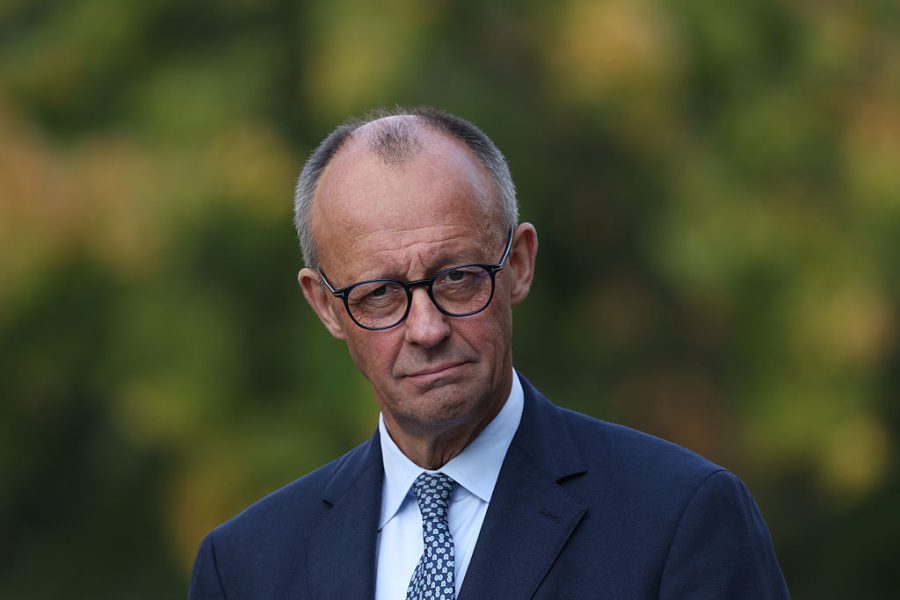Shortly after Vladimir Putin’s full-scale invasion of Ukraine in February 2022, the West prohibited transactions with the Bank of Russia and the Russian Federation’s Ministry of Finance. This effectively froze around $300 billion (£223 billion) of sovereign assets in foreign currency and gold reserves, mostly held in Euroclear, the central securities depository in Brussels.
Since then there have been ongoing discussions in Europe and the United States about the possibility of somehow accessing this enormous pool of money to help fund Ukraine’s defence and perhaps to use some of the assets for reconstruction and development once the conflict comes to an end. Western leaders would not be human if they did not at least entertain the idea: the United States has so far supplied $135 billion (£100 billion) in aid to Ukraine, EU institutions have contributed $74.3 billion (£55 billion) and the UK has given $22 billion (£16 billion). Not only are the frozen Russian assets temptingly substantial, they are growing, as the ban on transactions with the Bank of Russia and the Ministry of Finance means the annual interest of around $3 billion (£2.2 billion) has continued to accumulate.
Merz has made a valiant attempt to create a policy which has something for everyone
The obvious solution would be simply to transfer the frozen Russian assets to Ukraine, both to fund its military campaign and as a punitive measure against Putin’s government. Josep Borrell, then the EU’s high representative for foreign affairs and security policy, proposed in 2022 that the assets be seized, just as the United States had confiscated billions of dollars held in New York by Da Afghanistan Bank after the Taliban had returned to power in 2021.
Russia’s deputy foreign minister, Alexander Gruschko, with the brass neck only Russian ministers can muster, responded that such a move would represent ‘complete lawlessness’ and threatened that Russia would retaliate against the EU. Nevertheless, there are concerns about the legal basis for seizure of state assets, based on the doctrine of sovereign immunity and various international agreements protecting cross-border investments. Some EU member states have also expressed anxiety about the precedent it might set.
Nevertheless, a potential solution emerged recently from the European Commission. Described by an EU official as ‘legally creative’, it would use the frozen assets to provide Ukraine with a €140 billion (£104 billion) interest-free loan, replacing the money with zero-coupon bonds guaranteed by the EU. In addition, Ukraine would not be required to repay the loan until Russia paid reparations for the damage caused by the war. In effect, Russia would ultimately repay the loan made with its own money.
It is a neat solution which the European Commission believes would not formally equate to seizing Russian assets. It gained a powerful advocate last week when German chancellor Friedrich Merz endorsed the scheme in The Financial Times. He further proposed that Ukraine should only use the money for military equipment and that a certain proportion of this should be spent with the EU’s defence industries.
Merz has made a valiant attempt to create a policy which has something for everyone (except Russia). EU leaders met in Copenhagen on Wednesday to discuss European security, but agreement on the loan proposal has not yet been reached. Some governments, especially that of Belgium, where Euroclear is based, have demanded further reassurance that the scheme is legal, while France is wary of the potential financial liability on member states as it struggles with a domestic debt crisis. The European Central Bank has warned that the credibility of the euro could be undermined.
If committees are where good ideas go to die, EU summits are often where they receive extreme unction. For all the rhetoric about standing by Ukraine for as long as necessary and being staunch in support of its fight for survival, the West has too often taken the most cautious and timid route. Chancellor Olaf Scholz’s Zeitenwende address fizzled away, Ukraine’s request for main battle tanks took months to be answered and the US, Britain and France were very slow to allow Ukraine to conduct missile strikes on targets within Russia. Now the impression arises that any imaginable objection to the Commission’s loan scheme is being floated for fear of having to take decisive action.
If Europe really believes Russia poses a significant threat to the continent’s security, it will have to take risks. There is an intelligible case for the legality of the Commission’s plan, including the recognised doctrine of countermeasure which allows measures to be taken to force compliance with international law. Russia threatens retaliation, but it has made myriad threats over the past few years, including the use of nuclear weapons.
Vladimir Putin is everywhere testing the West’s resolve and endurance, as seen in recent incursions into Nato airspace. If Ukraine’s allies cannot agree on a scheme to sequestrate Russian assets, despite Russia’s invasion of Ukraine and the murderous conduct of its military campaign, it will reinforce the impression Putin already has of a coalition which likes to sound resolute and committed but is wavering when it comes to action. That can only bring him encouragement.








Comments